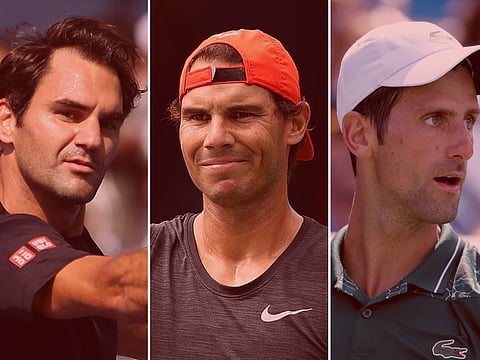Is tennis doing enough to safeguard itself as ugly face of suspicious betting and doping returns
TIU says it has received 24 alerts of suspicious betting in past two months

Also In This Package
Dubai: Tennis will mark a return to action with a provisional calendar starting with the 31 Palermo Ladies Open from August 3.
While being away for more than four months from sports has meant reduced playing and earning opportunities, these months of inactivity has also opened up the risks associated with betting-related corruption and doping violations in the tennis world.
The WTA’s provisional calendar has included two new events in its International Series with the Prague Open in the Czech Republic and the Top Seed Open in Lexington, Kentucky.
The ATP and WTA’s rules around players competing in exhibitions have been suspended, while there are no events being held on both tours.
With the suspension of professional tennis tours, the Tennis Integrity Unit (TIU) — ironically jointly funded by the Grand Slams, ATP, WTA and ITF tours — has now notified authorities that it received as many as 24 alerts of suspicious betting during May and June.
The alerts involved matches from various exhibitions taking place during the tour hiatus, though as is usual, the TIU did not identify specific contests or events. These alerts were provided by betting companies that offered wagers on the matches, in accordance with their agreement with the TIU.
“Suspicious betting on tennis during the lockdown is seen as a firm indicator that corruptors remain active, and are likely to increase their focus on the sport when professional tennis resumes,” the TIU said in a brief statement.
The body had previously warned about potential problems with ‘unofficial’ status events that are not subject to the TIU’s supervision, like all other events that are part of the professional tours. Suspicious betting usually prompts further investigation and can indicate fixing activity or inside betting, though not necessarily.
The TIU has also sought to explain the enhanced incidents at corruption in the sport while observing that “recent reduced playing and earning opportunities and months of inactivity, the risks associated with betting-related corruption and doping violations were higher”.
The TIU and anti-doping programme have provided an education programme for players during the suspension of competition to address this, it added, and a similar one will also be provided to officials.
In addition, the four Grand Slams and the three governing bodies for the sport have worked out a multi-million-dollar financial package mainly for the support of lower-ranked players during the time of the pandemic.
The financial package, first announced at around $6 million, is to be made available to players who fall below a certain ranking or can show that their career winnings are below the specific amount decided. The final modalities of the package are still being worked out in detail.
Some of the top players have also got involved with world No. 1 Novak Djokovic — also the president of the influential ATP Player Council — joined by fellow professionals Rafael Nadal and Roger Federer in vouching a separate $1 million along with singles players from the top 100 and doubles top 20 to support fellow players ranked outside the top-250.
For the sake of a comparison: tennis produced 101 alerts during 2019 — indicating a 43 per cent decline — as per the International Betting Integrity Association (IBIA).
So, is enough being done during these special times?
Sign up for the Daily Briefing
Get the latest news and updates straight to your inbox









